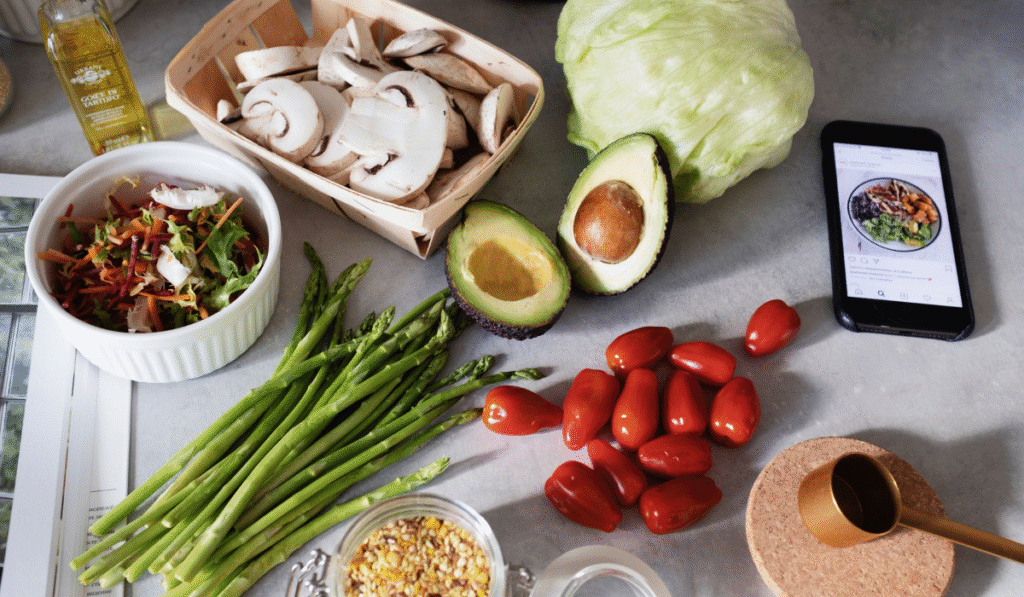When it comes to losing weight, improving energy levels, or managing blood sugar, low-carb and zero-carb diets are among the most effective lifestyle choices. Whether you’re following the keto diet, Atkins, or simply cutting back on carbs, knowing which foods are truly zero-carb can help you plan smarter meals.
Let’s dive into a detailed list of zero carb foods — grouped by category — that can make your diet more nutritious, satisfying, and effective.
1. Meat: The Ultimate Zero Carb Staple
Almost all fresh, unprocessed meats contain zero carbohydrates. They’re rich in protein, iron, and vitamin B12, making them essential for energy and muscle repair.
Examples:
- Beef – Ground beef, steaks, ribeye, and tenderloin are carb-free and packed with protein.
- Pork – Pork chops, tenderloin, and pork belly contain no carbs.
- Lamb – A flavorful option loaded with healthy fats and zero carbohydrates.
- Venison – A lean, zero-carb red meat alternative for variety.
- Organ meats (like liver or kidney) – Very low to zero in carbs, plus high in vitamins and minerals.
✅ Tip: Avoid processed meats like sausages, hot dogs, or deli meats, as they often contain hidden carbs from fillers or sugar.
2. Poultry: Lean and Zero-Carb Protein Sources
Chicken and turkey are not only versatile but also contain no carbs when cooked without sauces or breading.
Examples:
- Chicken breast or thighs – High in protein and completely carb-free.
- Turkey – A lean meat option perfect for salads or roasts.
- Duck and Quail – Slightly fattier but still carb-free and delicious.
✅ Tip: Always choose grilled, roasted, or baked poultry instead of fried versions coated in batter.
3. Seafood: Zero-Carb and Omega-3 Rich
Most fish and shellfish are naturally zero carb and provide essential omega-3 fatty acids, which support heart and brain health.
Examples:
- Salmon – A keto favorite rich in healthy fats.
- Tuna – Excellent for quick meals; canned or fresh, both work.
- Sardines – Great source of calcium and omega-3s.
- Trout and Mackerel – Fatty fish that fuel your body without carbs.
- Shrimp, Crab, Lobster – Delicious and entirely carb-free seafood choices.
✅ Tip: Avoid seafood with sauces or marinades that include sugar or starch.
4. Eggs: Nature’s Perfect Zero-Carb Food
Eggs are one of the most nutrient-dense foods on earth — packed with protein, healthy fats, and essential vitamins — all with zero carbohydrates.
- Each egg has roughly 0 grams of carbs and 6 grams of protein.
- Ideal for breakfast, snacks, or as a salad topping.
- Rich in choline, which supports brain health.
✅ Tip: For a more filling meal, cook eggs in butter or olive oil instead of carb-heavy spreads.
5. Fats & Oils: 100% Zero-Carb Energy Sources
Pure fats contain no carbohydrates. They’re a key component of any low-carb or ketogenic diet since they provide sustainable energy.
Best Zero-Carb Oils:
- Olive oil – Heart-healthy and perfect for salads.
- Coconut oil – Ideal for cooking and bulletproof coffee.
- Avocado oil – High smoke point and nutrient-rich.
- Butter and Ghee – Great for flavor and energy.
- Animal fats – Like tallow or lard, zero in carbs and rich in flavor.
✅ Tip: Stick to natural, unrefined oils and avoid margarine or hydrogenated fats.
6. Cheese: Low-Carb to Nearly Zero-Carb Options
Most cheeses are low in carbs, and some are virtually carb-free, especially hard and aged varieties.
Examples:
- Cheddar – <0.5g carbs per serving.
- Parmesan – Nearly zero carbs and adds great flavor.
- Swiss and Gouda – Minimal carbs with rich taste.
- Blue cheese – Bold flavor, nearly carb-free.
- Cream cheese – Very low in carbs, perfect for keto desserts.
✅ Tip: Always check labels — some processed cheeses include starch or additives that increase carb content.
7. Processed Meats (Choose Wisely)
Some processed meats can still be nearly zero-carb — if they don’t include fillers, sugars, or binders.
Examples:
- Bacon – Generally low or zero-carb if sugar-free.
- Pepperoni and Salami – Minimal carbs, great for snacking.
- Jerky – Look for unsweetened versions only.
✅ Tip: Always read ingredient labels to ensure no hidden sugars or carbs.
8. Condiments & Seasonings (Zero-Carb Approved)
Flavoring your meals doesn’t have to add carbs. Some condiments and spices are naturally carb-free.
Zero-Carb Flavor Boosters:
- Salt and Pepper – Basic and carb-free.
- Vinegar – Especially white vinegar and apple cider vinegar.
- Soy Sauce (light versions) – Use sparingly; low in carbs.
- Mustard, Hot Sauce, and Herbs – Most are carb-free if unsweetened.
✅ Tip: Avoid ketchup, BBQ sauce, and salad dressings with added sugar.
9. Zero-Carb Drinks
Staying hydrated is crucial on a low-carb diet. Luckily, several beverages have zero carbohydrates.
Best Options:
- Water – Always your best bet.
- Sparkling water – Adds fizz without carbs.
- Black coffee – Pure energy with no carbs.
- Green or Herbal Tea – Refreshing and antioxidant-rich.
- Club soda or mineral water – Great substitutes for sugary drinks.
✅ Tip: Skip energy drinks, sodas, and alcohol — many contain hidden carbs.
10. Sugar Substitutes (Zero-Carb Sweeteners)
Craving something sweet on a zero-carb diet? Use these carb-free alternatives instead of sugar.
Popular Zero-Carb Sweeteners:
- Stevia – Natural and calorie-free.
- Erythritol – Tastes like sugar but doesn’t affect blood sugar.
- Monk Fruit Sweetener – A great keto-friendly option.
- Sucralose (Splenda) – Common in low-carb recipes.
✅ Tip: Use these sparingly; overuse can cause bloating or cravings.
11. Almost Zero-Carb Vegetables
While most vegetables contain some carbs, a few are close to zero — especially leafy greens and cruciferous veggies.
Examples:
- Spinach and Kale – Packed with fiber and micronutrients.
- Lettuce – Ideal for salads and wraps.
- Cucumber and Celery – Crunchy and hydrating, less than 1g net carbs per serving.
- Zucchini – Great for low-carb noodles or sides.
✅ Tip: Choose non-starchy vegetables for the lowest carb count.
12. Zero-Carb Snacks for Cravings
When hunger strikes, reach for snacks that keep you full and carb-free.
Great Choices:
- Hard-boiled eggs
- Cheese cubes or sticks
- Beef jerky (unsweetened)
- Pork rinds
- Olives
✅ Tip: Pair snacks with water or tea to stay hydrated and prevent overeating.
13. Zero-Carb Sauces & Dips
Many creamy sauces can be made zero-carb using simple, keto-friendly ingredients.
Examples:
- Homemade mayonnaise – Made with eggs and oil.
- Ranch or garlic butter sauce – Great for veggies or meats.
- Aioli – A tasty dip made from egg yolks, garlic, and olive oil.
✅ Tip: Always make sauces at home to control ingredients and avoid hidden carbs.
14. Zero-Carb Add-Ons and Cooking Essentials
Enhance meals with these carb-free staples.
Examples:
- Gelatin (unflavored) – Great for keto desserts.
- Bone broth – Nourishing and carb-free.
- Unsweetened cocoa powder – Nearly zero-carb for baking.
- MCT oil – Boosts energy and fat-burning on keto.
✅ Tip: Add MCT oil to coffee or smoothies for a quick energy lift.
15. Zero-Carb Meal Ideas
Looking for inspiration? Try combining the above foods into simple, delicious meals.
Examples:
- Breakfast: Scrambled eggs with bacon and avocado.
- Lunch: Grilled chicken salad with olive oil dressing.
- Dinner: Salmon with buttered asparagus and garlic sauce.
- Snack: Cheese and turkey roll-ups with mustard.
These combinations ensure you stay within your zero-carb or ultra-low-carb range while still enjoying flavorful, balanced meals.
Benefits of a Zero-Carb Diet
- Faster Weight Loss – Cutting carbs triggers fat-burning (ketosis).
- Stable Blood Sugar – Ideal for people managing diabetes.
- Reduced Cravings – High-protein and fat meals keep you fuller longer.
- Improved Focus and Energy – No sugar spikes or crashes.
- Better Heart Health – When combined with healthy fats like olive oil and fish.
A Few Things to Keep in Mind
While zero-carb eating can be beneficial, it’s important to:
- Stay hydrated and add electrolytes.
- Eat enough fiber from low-carb veggies.
- Avoid overly processed meats and snacks.
- Consult your doctor before starting a strict zero-carb plan, especially if you have health conditions.
Final Thoughts
Adopting a zero-carb lifestyle doesn’t mean sacrificing flavor or variety. From juicy steaks and creamy cheeses to crisp lettuce and rich oils, you can enjoy a delicious, satisfying diet without worrying about carbs.
Whether your goal is weight loss, better health, or sustained energy, these 30 zero-carb foods offer the perfect foundation for a clean and effective eating plan.
So go ahead — fill your plate with these nutrient-packed options and enjoy the benefits of a carb-free lifestyle!
Also Read: Mental Health Apps: Transforming Mental Wellbeing in the Digital Age






